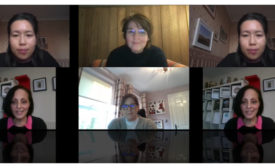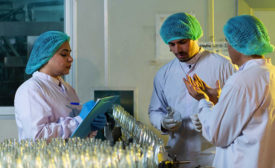Lone Jespersen Ph.D.
Lone Jespersen, Ph.D., is a published author, speaker, and the Principal and Founder of Cultivate SA, a Swiss-based organization dedicated to eradicating foodborne illness, one culture at a time. Dr. Jespersen has worked with improving food safety through organizational culture improvements for 20 years, since she started at Maple Leaf Foods in 2004. She chaired the Global Food Safety Initiative (GFSI) technical working group A Culture of Food Safety, chaired the International Association of Food Protection (IAFP) professional development group Food Safety Culture, and was the technical author on the BSI PAS320 Practical Guide to Food Safety Culture. Dr. Jespersen holds a Ph.D. in Culture Enabled Food Safety from the University of Guelph in Canada and a master’s degree in Mechanical Engineering from Syd Dansk University in Denmark. She is a visiting Professor at the University of Central Lancashire in the UK. Dr. Jespersen serves as Chair of the IFPTI board and as Director on the Stop Foodborne Illness board. She is also a member of the Editorial Advisory Board of Food Safety Magazine and a member of the Educational Advisory Board of the Food Safety Summit.
ARTICLES
Food Safety Culture and Its Impact on Pest Management
Risk Culture: How Reducing Complexity Improves the Safety of Consumers, Team Members, and the Company
Using Frontline Feedback to Nudge Food Safety Culture Improvements
How to Adapt Food Safety Culture Efforts to Functional Ways of Working
Global Food Safety Culture: Latin America
Global Food Safety Culture: North America
Global Food Safety Culture: Asia
Changing Culture to Improve Food Safety
Never miss the latest news and trends driving the food safety industry
eNewsletter | Website | eMagazine
JOIN TODAY!Copyright ©2024. All Rights Reserved BNP Media.
Design, CMS, Hosting & Web Development :: ePublishing









